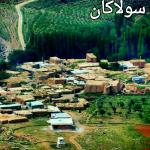Kurdistan
Kurdistan ("Land of the Kurds") is a roughly defined geo-cultural region wherein the Kurds form a prominent majority population, and Kurdish culture , language, and national identity have historically been based.
Contemporary use of Kurdistan refers to parts of eastern Turkey (Turkish Kurdistan), northern Iraq (Iraqi Kurdistan), northwestern Iran (Iranian Kurdistan) and northern Syria inhabited mainly by Kurds. Kurdistan roughly encompasses the northwestern Zagros and the eastern Taurus mountain ranges. and covers small portions of Armenia.
Iraqi Kurdistan first gained autonomous status in 1970 agreement with the Iraqi government and its status was re-confirmed as an autonomous entity within the federal Iraqi republic in 2005. There is also a province by the name Kurdistan in Iran, although it does not enjoy self-rule.
Some Kurdish nationalist organizations seek to create an independent nation state of Kurdistan, consisting of some or all of the areas with Kurdish majority, while others campaign for greater Kurdish autonomy within the existing national boundaries.
History
Ancient period
Main articles: Hurrians , Guti , Mannaeans , Corduene , and Armenians
Various groups, among them the Guti , Hurrian , Mannai (Mannaeans), and Armenians had lived in this region in antiquity . The original Mannaean homeland was situated east and south of the Lake Urmia , roughly centered around modern-day Mahabad . The Medes came under Persian rule during the reign of Cyrus the Great and Darius.
The Kingdom of Corduene , which emerged from the declining Seleucid Empire , was located to the south and south-east of Lake Van between Persia and Mesopotamia and ruled northern Mesopotamia and southeastern Anatolia from 189 BC to AD 384 . At its zenith, the Roman Empire ruled large Kurdish-inhabited areas, particularly the western and northern Kurdish areas in the Middle East. Corduene became a vassal state of the Roman Republic in 66 BC and remained allied with the Romans until AD 384. Corduene was situated to the east of Tigranocerta , that is, to the east and south of present-day Diyarbakır in south-eastern Turkey.
Some historians have correlated a connection between Corduene with the modern names of Kurds and Kurdistan ; T. A. Sinclair dismissed this identification as false, while a common association is asserted in the Columbia Encyclopedia.
One of the earliest records of the phrase land of the Kurds is found in a Syriac Christian document of late antiquity , describing the stories of Christian saints of the Middle East, such as the Abdisho . When the Sassanid Marzban asked Mar Abdisho about his place of origin, he replied that according to his parents, they were originally from Hazza, a village in Assyria . However they were later driven out of Hazza by pagans , and settled in Tamanon, which according to Abdisho was in the land of the Kurds. Tamanon lies just north of the modern Iraq-Turkey border, while Hazza is 12 km southwest of modern Irbil . In another passage in the same document, the region of the Khabur River is also identified as land of the Kurds.


